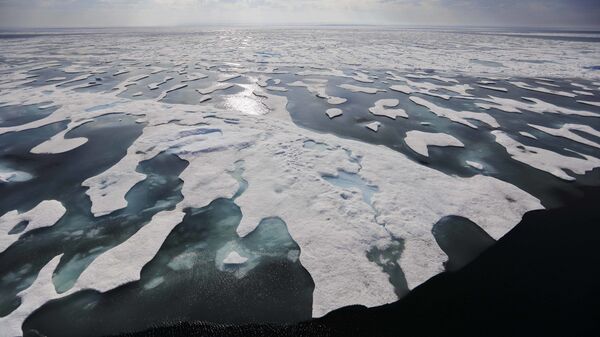Sputnik spoke for more with Dave Reay, a professor in Carbon Management at the University of Edinburgh.
Sputnik: In your personal opinion, do you think we're getting closer to finding a consensus for the date we can reach carbon neutrality?
Dave Reay: Yes, I think one of the things we're seeing right now in Bonn, is the countries that have been really recalcitrant on tackling climate change and have been consistently in the way of far-reaching emission reductions are really feeling the pressure.
So I think that's why we're seeing the news today about Saudi, for instance, still sticking its heels in about the 1.5-degree report from the scientists. But I think that's a sign that they're actually losing the battle.
So it's no surprise that they're doing it. But I think actually, we're moving towards the consensus we need.
Sputnik: And there's been reports out recently that at the upcoming G20 summit in Japan, the commitments to global warming have actually been watered down from the previous arrangements. What's your take on that?
Dave Reay: Obviously, the final report or declarations hasn't been released, I think that's a sign always that there are politics going on. Bolsonaro in Brazil will be a key player in that just in terms of political agendas and ideologies.
And I think in terms of what that statement will mean, it will be a representation again, I think, of the pressure being on.
But by itself I guess, people are trying to set out the ground in preparation for the Conference of the Parties in Chile later this year. And then the big one next year, hopefully, in the UK, Cop26, where everyone comes up with new commitments on climate change.
So there's a lot of positioning to try and say, you know, 'we can't possibly make big commitments' because we've got all these other factors or we don't see the science as robust enough. Those positions can then be relaxed for Cop26 and nations could say, 'actually, we'll move a bit' so we're seeing I think, a lot of the hard lines being set to allow them negotiation to then progress over the coming year.
Sputnik: How important are these global pacts and agreement? Some people would argue the government should sort of stick to their own initiatives without worrying about international deadlines. Where do you stand on this?
Dave Reay: They're absolutely vital. I mean, I think in terms of the national commitments, obviously, they're really important, but we're a global economy.
We're a global society and we're trying to tackle global climate change. And so one country acting by itself, it can do a certain amount, but we rely on trade of goods. So if we're decarbonising, for instance, the UK, like we're planning to and reach net zero by 2050, but the rest of the world carries on producing all the goods that we then import in a high carbon way, then that's not going to get the change in climate we need.
So yes, we need that national level action, but it needs to be coordinated at an international level. That's why the Paris Agreement is the best game in town.
The views and opinions expressed in this article are solely those of the speaker and do not necessarily reflect those of Sputnik.



